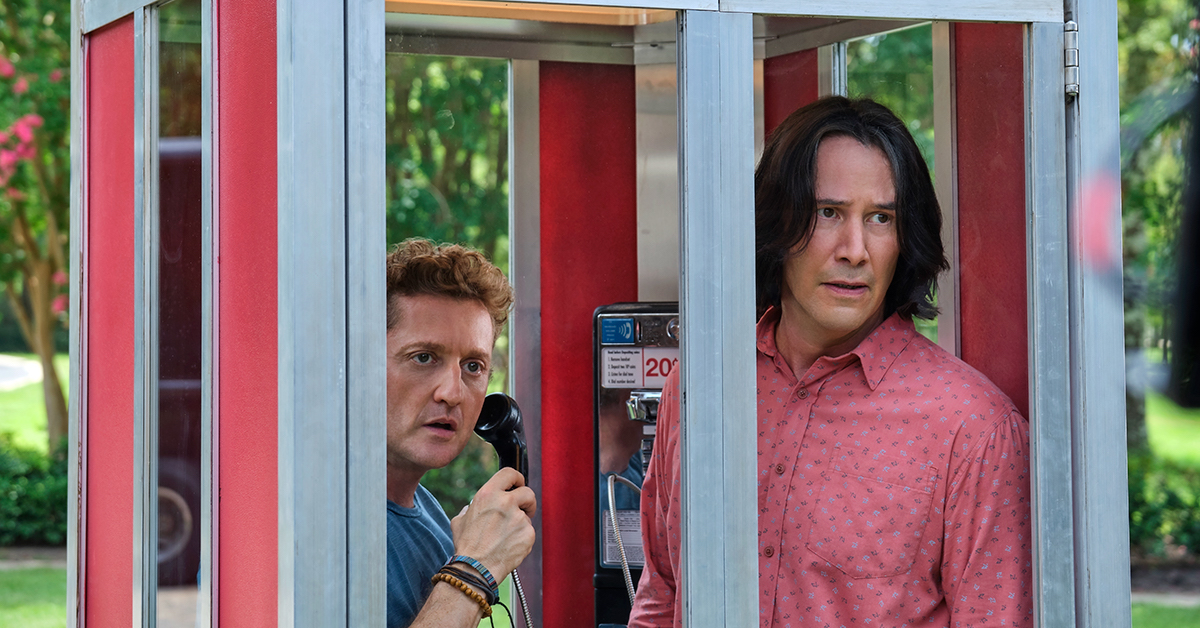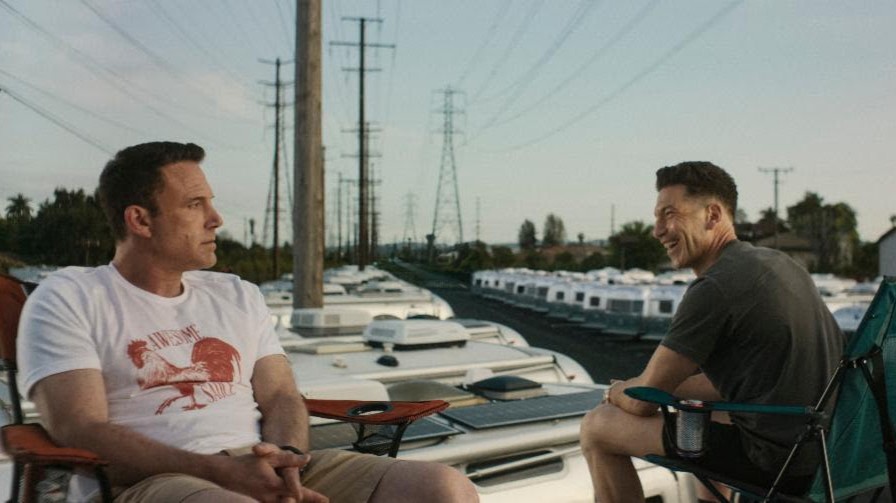What to Watch Verdict
Despite some thoughtful updates to the series’ airheaded comedy, Alex Winter and Keanu Reeves deliver a third chapter that sadly falls short of excellent.
Pros
- +
🎸 It's great to see that screenwriters Chris Matheson and Ed Solomon have grown up, even if Bill and Ted haven't.
- +
🎸 Brigitte Lundy-Paine and Samara Weaving play more than worthy successor to the title duo's legacy.
Cons
- -
🎸 The time-travel plot lands on a handful of good ideas - some new, and some familiar - that don't mesh well.
It’s hard to knock a movie as earnest and well-intentioned as Bill & Ted Face the Music, but even if the filmmakers’ heart is clearly in it, that doesn’t mean the feeling translates to viewers - whether or not they were fans of the original films.
Director Dean Parisot (Galaxy Quest) is skilled at making comedies that simultaneously make fun of and love their subjects, an approach that Bill and Ted desperately need. But even if the movie ostensibly does what a “legacysequel” like this probably should - namely, reckon with the identities of characters we love and examine how much they have grown (or haven’t) - Bill & Ted Face the Music evidences a growth on the filmmaking side that doesn’t benefit the characters if it leaves them out of that process.
30 years after winning the Battle of the Bands that set their musical career in motion, Bill (Alex Winter) and Ted (Keanu Reeves) have slid into obscurity, and failed to write the song that Rufus (George Carlin) and his cohorts from the future said would unite the world. More immediately, however, their wives Joanna (Jayma Mays) and Elizabeth (Erinn Hayes) are dissatisfied with the duo’s constant, almost monolithic contact with one another; both speak as one, and have engineered lives that are constantly intertwined, from building houses next door to one another to facilitating next-generation best friendships between their daughters Thea (Samara Weaving) and Billie (Brigette Lundy-Paine).
After taking a couples counseling session too literally, Bill and Ted leave Joanna and Elizabeth behind and drive home to figure out how to fix their damaged relationships. Before they can develop a plan, however, Rufus’ daughter Kelly (Kristen Schaal) arrives from the future with news of an imminent deadline: if they don’t perform the song that was foretold - which they still don’t have - then not only will the world not unite, but life, time and space in the universe will come to an end. As the clock ticks down to an apocalypse, Bill and Ted decide that the best way to fulfill their destiny is to travel through time and steal it from their future selves. But when they arrive to claim the song, Bill and Ted discover that their future selves are unhappy that they failed to accomplish this goal themselves, and have plans of their own that further throw the fate of the universe into jeopardy.
Written by Chris Matheson and Ed Solomon, who wrote the first two films, Face the Music follows the same rules about time travel as its predecessor - which means, basically none. That’s a virtue in a story like this that’s simultaneously a hero’s quest and a travelogue. Bill and Ted achieving their destinies while the past, present and future comments on possible alternatives (and comedic opportunities) to the path they’ve chosen. Meanwhile, Matheson and Solomon have essentially created the platonic ideal of a next-generation adventure for these two dimwits - happily (if obliviously) married former ‘80s rock gods who settled into suburban dads, with daughters with more musical knowledge than them - which, by itself, provides plenty of fuel for a compelling new story.
Admittedly, it probably wouldn’t be as interesting on screen to watch these guys undertake the emotional labor to try and meet their wives’ needs, or to find a common ground with Thea and Billie more substantial than shared musical minutiae. But in trying to recreate the energy of the earlier films with another time-traveling plot, one that this time lines up with one embarked upon by Thea and Billie, and still a third involving a murderous robot named Dennis Caleb McCoy (Anthony Carrigan), what happens to Bill and Ted ends up feeling hurried, and unengaging. There are inspired moments, particularly when the duo encounters their ultra-jacked convict future counterparts. But it’s strange to come up with the idea of building the greatest band in history, featuring Jimi Hendrix, Louis Armstrong, Mozart, and more, and the whole experience feel so unexciting and disconnected.
To their credit, Alex Winter and Keanu Reeves throw themselves wholeheartedly into roles that by any measure they should have outgrown decades ago - well, Winter does, anyway. (Reeves clearly does his best, but seems a bit unmoored from the true airheadedness that made his teenage performances so vibrant.) Their commitment to the characters is admirable, and without it, Face the Music would flop entirely. Meanwhile, Weaving and Lundy-Paine spend too much time impersonating their cinematic fathers and not enough simply inheriting their legacies. Thea and Billie are interesting enough to command their own story, one that more fully acknowledges the changes in music between 1989 and 2019, much less the social and cultural ones that came with them. (A better way to acknowledge the progress the title characters are coming to terms with would be to include their wives and daughters more fully in their story.)
Meanwhile, it’s fun to watch William Sadler revisit his Grim Reaper character, now estranged from the band for grandstanding during concert appearances. As Power Ranger-y as he looks, Carrigan’s robot assassin injects far more scenes than one might expect with some unexpected moments of humor. But again, Parisot’s movie has its heart in the right place, and aims to keep its ideas aligned with that - it just doesn’t quite pull off all of the basic mechanics of its story for everything to fall into place. That said, I like the fact that after three films, Bill and Ted actually begins to deal with how hard it is to write a song meant to unite the entire world. It’s just too bad that in Bill & Ted Face the Music, they manage to round up a murderer’s row of musicians from across time, and somehow don’t manage to get close to one that’s more than just pretty good.
Bill & Ted Face the Music will be available in theaters and on demand on August 28th.
Todd Gilchrist is a Los Angeles-based film critic and entertainment journalist with more than 20 years’ experience for dozens of print and online outlets, including Variety, The Hollywood Reporter, Entertainment Weekly and Fangoria. An obsessive soundtrack collector, sneaker aficionado and member of the Los Angeles Film Critics Association, Todd currently lives in Silverlake, California with his amazing wife Julie, two cats Beatrix and Biscuit, and several thousand books, vinyl records and Blu-rays.












